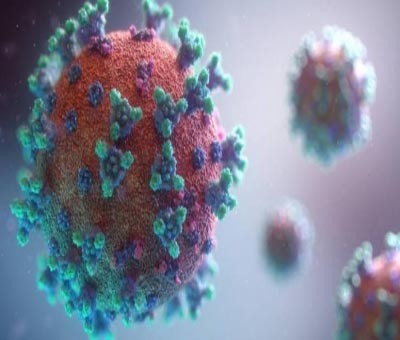
Sao Paulo, For the first time, scientists have shown that infection by Covid virus changes the functioning of host cell RNA, providing clues as to how different variants can escape the immune system, and serve as a basis for the development of novel treatments.
Researchers at Federal University of Sao Paulo (UNIFESP) in Brazil arrived at this conclusion by analyzing 13 datasets obtained during four studies of viral, human and animal cell RNA.
The study, published in Frontiers in Cellular and Infection Microbiology, examined the epitranscriptome of Vero cells (derived from monkeys) and human Calu-3 cells by direct RNA sequencing.
An epitranscriptome is the collection of biochemical modifications of cell RNA, such as methylation.
"Our first important finding in this study was that infection by SARS-CoV-2 increases the level of m6a, a type of methylation, in host cells compared with non-infected cells," Marcelo Briones, an author of the article, told Agencia FAPESP.
The study was a continuation of an earlier genomic analysis published in 2021, where the researchers analyzed the methylation pattern in SARS-CoV-2 virus.
"Methylation has two functions in viruses. It regulates protein expression, and it defends the virus against the action of interferon, a potent antiviral substance produced by the host organism," Briones said.
The team also discovered that different strains of the virus displayed variations in the sequences of nitrogenous bases in their nucleotides.
"Some strains may be much more methylated than others. If so, they can proliferate better inside host cells," Briones said.
After completing their investigation of how SARS-CoV-2 modifies m6A in host cells, the scientists' next step will be to analyse the stored data in search of a correlation between viral RNA methylation levels and the number of viruses released from each infected cell, known as viral burst size.
"The more methylated the viruses, the more they grow in the cell cytoplasm and the larger the burst size," Briones explained.
The findings pave the way to novel treatments for COVID-19 and repurposing of known drugs, the researchers noted.


.jpeg)

